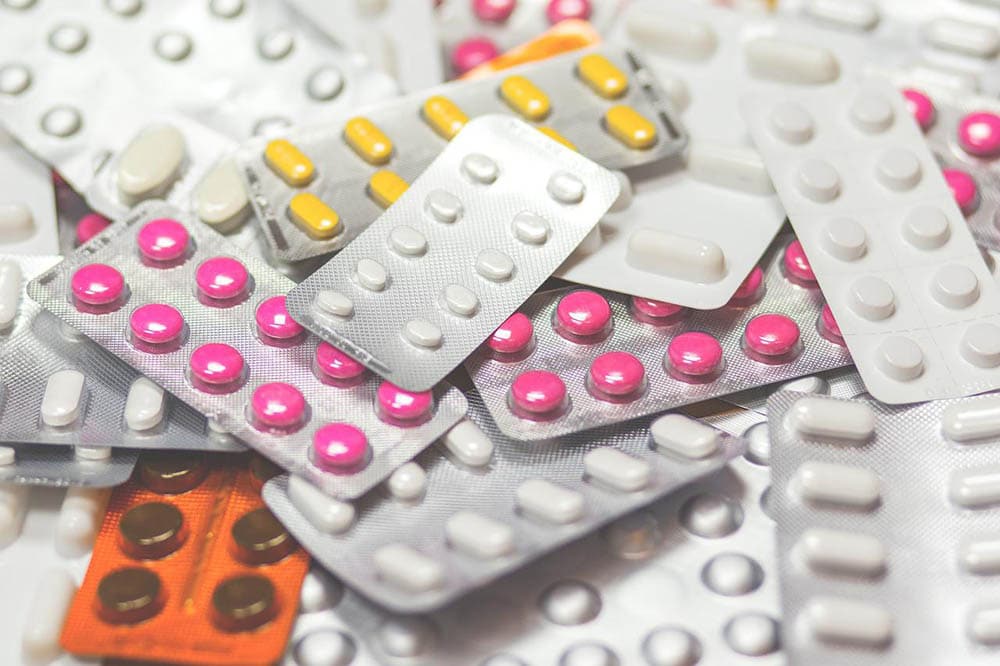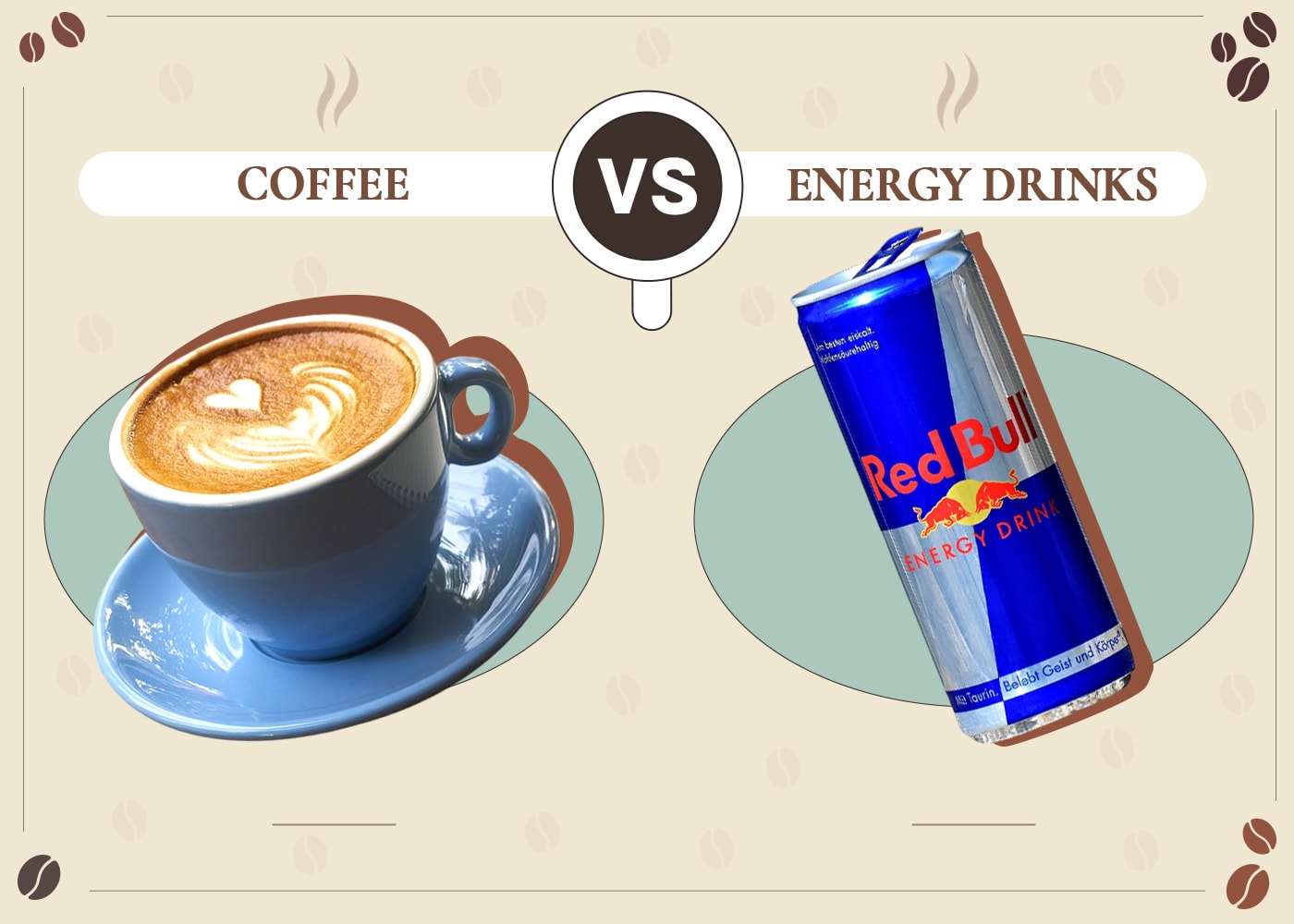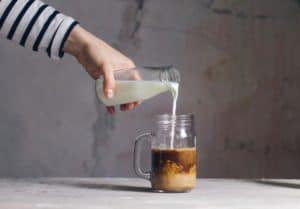
It’s hard to deny the cool, refreshing taste of a fresh can of soda when you pop it open. For many people, their soda of choice is a treat they can enjoy to not only quench their thirst but also provide them with a bit of caffeine to help them stay focused throughout their day. Unfortunately, regular sodas aren’t the best choice to make for our health. Why? All the sugar that is found inside.
Luckily, most beverage companies offer choices to help those who are trying to avoid too much sugar and other additives in their lives. One such option is Coca-Cola Zero Sugar. If you’re a fan of Coke Zero Sugar then you already know it has its own flavor and kick that many people out there love. While this soda option has no sugar inside the can, it’s important to know how much caffeine you’re looking at when you pop the top. Coca-Cola Zero Sugar contains 34 mg of caffeine in each 12-ounce can.
Let’s learn a bit more about Coca-Cola Zero Sugar, the caffeine found inside, and whether this soda that is marketed as better for you is truly a smart option.
The Story of Coca-Cola Zero Sugar
Before we talk about the caffeine in Coca-Cola Zero Sugar let’s take a look at how this drink came to be one of Coca-Cola’s most popular options. To do this, however, we need to start back at the beginning with the original better-for-you soda option, the diet cola. The first actual diet soda most remember is Diet Rite in 1958.
Seeing how the diabetic community and others reacted to this drink made Coca-Cola begin developing its own. Unfortunately, they were a bit worried about the branding so instead of coming out with Diet Coke instantly, they opted for Tab in 1963. After this release, other companies came out with their own diet versions and used their own names. Finally, in 1982, Diet Coke emerged to replace Tab as Coca-Cola’s diet soda option.
Diet Coke is a force in the soda world all on its own. This beverage is not marketed as simply a diet form of Coke. Instead, it has a unique recipe to offer drinkers. When Coca-Cola Zero, the original name for Coke Zero Sugar hit the market in 2005, that wasn’t the case. This soda version was not only designed to help those who wanted a little less sugar in their lives, but it also worked to give them a drink that tasted a lot like the star of their company, Coke. There was a lot of confusion for some drinkers, however. With the name Coca-Cola Zero, many thought there was no sugar or caffeine inside the can. To clear up any confusion, Coca-Cola decided to rebrand and Coca-Cola Zero Sugar was reborn in 2017.
The Caffeine in Coca-Cola Zero Sugar
While Coke Zero Sugar is an excellent option for diabetics or dieters who want to steer clear of sugar, what about the caffeine inside? While some were confused by the “Zero” label when this soda came out, the new branding makes it clear that sugar is the only thing absent. In a 12-ounce can of Coca-Cola Zero Sugar, you’ll find 34 mg of caffeine. This amount is relatively low in comparison to other sodas out there. Original Coke even offers less caffeine than some of its competitors. All Coca-Cola Zero Sugar flavors have the same amount of caffeine. These include Coca-Cola Cherry Zero Sugar and Coca-Cola Vanilla Zero-Sugar.
Let’s see how Coca-Cola Zero Sugar ranks against other popular sodas of the kind when it comes to caffeine content.
| Coca-Cola Zero Sugar (12-ounce can) | 34 mg of caffeine |
| Pepsi Zero Sugar (12-ounce can) | 69 mg of caffeine |
| Mountain Dew Zero Sugar (12-ounce can) | 68 mg of caffeine |
| Dr. Pepper Zero Sugar (12-ounce can) | 41 mg of caffeine |
Understanding Caffeine
Caffeine is found in many of the beverages we enjoy when trying to stay alert and focused. It is a naturally occurring stimulant found in over 60 plants around the world. These plants include coffee, tea, and cacao plants. Cola companies use caffeine as a pleasantly flavored additive to help balance the taste of their product and give people the boost they enjoy. While we may grab a soda to help us keep going throughout the day, many of us are unaware of the benefits when it comes to caffeine. Let’s take a look.
Better Moods and Brain Function
Simply put, caffeine makes us feel better. It can also help clear our minds. Why is this? When we drink caffeine it blocks the neurotransmitters in our brains called adenosines that make us feel tired or sleepy. When consumed in moderation, caffeine can trick these neurotransmitters and help you stay more alert, thus elevating your mood and brain function.

Weight Loss and Fat Burning
The stimulating effect of caffeine can help us stay more energized. This boost of energy is especially effective when exercising. When a little caffeine is added into the mix, you’ll find that workouts tend to go for extended periods and seem easier. This added boost can help you burn more calories which are how our bodies burn away fat. You’ll even find that certain dietary supplements include caffeine as part of their ingredients to help in these areas.
Medications
There are a few medications out there, both prescription and over-the-counter, that have caffeine in them. People who suffer from asthma or allergies, or even rely on certain pain relievers may be reaping the benefits of added caffeine in their medications.

The Downsides of Caffeine
While caffeine tastes great and can offer our bodies a few benefits, there are still concerns you should be aware of when consuming it. To avoid any potential side effects from caffeine, the U.S. Food and Drug Administration suggests that a healthy adult consumes only 400 mg of caffeine per day. This number should be half that for pregnant women and children should avoid caffeine as much as possible.
Here’s a look at potential side effects you may experience when you’ve had too much caffeine throughout the day. If you experience any of these, reduce your caffeine intake and reach out to your doctor to discuss things.
- Increased heart rate
- Insomnia
- Jitteriness
- Headaches
- Nausea
- Anxiousness
- Seizures (in severe instances)
Final Thoughts
If you’re concerned with the amount of caffeine inside a Coca-Cola Zero Sugar, you aren’t alone. Watching your caffeine levels is as natural as being concerned with the amount of sugar in a cola. Luckily, for those who enjoy a Coca-Cola Zero Sugar now and then, the 34 mg of caffeine inside a 12-ounce can is considered a low amount. Feel free to enjoy one of these tasty drinks when you need a pick-me-up, but remember, when it comes to anything containing caffeine, moderation is always the key.















